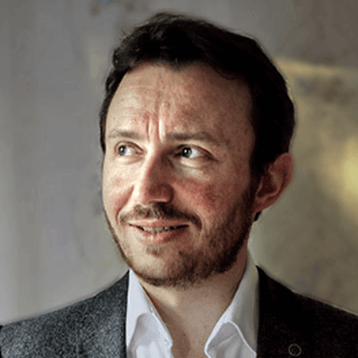
We speak to Robin Bonn of Co:definery, a new-business management consultancy, to get his thoughts and predictions on how new business will continue to change and what agencies can do to make sure they stay relevant and win more often.
Over the last few years brands have changed their priorities – the rise of digital and tech disruption has meant that they have had to push innovation towards the top of the agenda, or face extinction. The way consumers now make purchasing decisions has meant brands must now focus on the customer experience more than ever. And the way that we consume media has now totally shifted, with mobile the new normal.
The priorities of decision-makers at all levels within brands are now much more fluid as they operate in an environment where there is fast change
and consistent uncertainty. Therefore, it would make sense that the way they approach and select their agencies has also shifted. Some agencies aren’t ready for this and still look at the role of ‘new business’ much in the same way. New business professionals in many cases are seen as reps, lead generators, and door openers while failure leads to scapegoating and blame. In 2017, the marketing world will continue to change rapidly while newer, leaner agency startups will open up shop more and more – therefore it’s never been more important to get your new business strategy right.
What has been your approach to new business when first on the ground in a new company?
Having spent so many years in new business roles across agencies, consultancies and technology businesses, across global networks to start-ups and independents getting ready to sell, experience has taught me that you need to diagnose before you prescribe. This complexity is one reason why the new-business discipline is becoming more polarized. The experience and perspective needed to set the agenda and define the right ‘newbiz’ operating model is very different to the skills (and cost) of the right people to keep the plates spinning over time.
It stands to reason that an empty pipeline or poor pitch conversion can have dozens of causes, so you need to peel back the layers to get to the heart of what needs to be done. That’s why a Discovery phase is so important.
...if you’re saying the same things as everyone else, especially if it’s a load of over-claiming smoke and mirrors, then you’re going to struggle.
Robin Bonn
What has been your approach to new business when first on the ground in a new company?
Having spent so many years in new business roles across agencies, consultancies and technology businesses, across global networks to start-ups and independents getting ready to sell, experience has taught me that you need to diagnose before you prescribe. This complexity is one reason why the new-business discipline is becoming more polarized. The experience and perspective needed to set the agenda and define the right ‘newbiz’ operating model is very different to the skills (and cost) of the right people to keep the plates spinning over time.
It stands to reason that an empty pipeline or poor pitch conversion can have dozens of causes, so you need to peel back the layers to get to the heart of what needs to be done. That’s why a Discovery phase is so important.
What do you think agencies and consultancies are doing wrong when it comes to winning business?
I’m wary of binary labels like ‘right’ and ‘wrong’ because I have a real aversion to the idea of ‘best practice’, which is totally at odds with standing-out. Bespoke new-business models work better – and that means working out what’s right for you.
That said, clearly if you’re saying the same things as everyone else, especially if it’s a load of over-claiming smoke and mirrors, then you’re going to struggle.
So although this advice is as old as the hills, it’s more relevant now (and rarely applied) than ever before – get yourself a differentiated proposition. No jargon, no BS, just a direct answer to the question, ‘what do you actually do?’
How have CMO, CXO, CIO’s priorities changed over the last few years? And how has this impacted procurement?
We could fill reams with unpicking how marketing has evolved beyond comms into products and services, and how this has broadened remits into IT and the wider C-suite – so let’s not!
And I think their role is getting harder. If clients are going to innovate – and they need to if they’re going to win back consumer trust – then the chances are that they’ll need to look beyond the traditional agencies on their roster. So retaining the risk protection while facilitating the agility to go off-piste is a challenge for procurement.
This shift has certainly reduced buyer confidence. Creds meetings used to be hard, with the clients holding all the cards. But now innovative agencies have a point of view that the client needs. The mood is more open and discursive and there’s huge value in helping clients define an emerging space.
As for procurement, they get such a bad rap and it annoys me. Of course, there are bad ones, but there are great ones too – just like agencies and consultancies.
I’d like to see more procurement voices redressing some of the bullshit that gets said about them. Sadly, it’s only really Tina Fegent banging the drum for what is an important (and unavoidable) set of stakeholders.
Is the traditional role of the “new business” person often flawed? What can agencies do to get it right?
It’s not so much flawed as varied, so agencies’ expectations are often wildly wrong.
Everyone broadly knows what a Creative Director or Head of Tech does, but new business is different. Not only does it span sales, marketing, PR, operations, internal comms, finance and more, but also everyone has their own view on where it begins and ends.
Clearly there are huge nuances around the remit, as well as the skills, seniority and personality that goes into getting a good, long-term fit and a sensible set of KPIs.
Although we’ve come a long way from ‘welcome aboard, here’s your phone, now piss off and make the magic happen’, exactly how far – and in which direction – varies massively. No wonder new-business job descriptions are so often generic.
When I was a candidate, you could immediately spot the agencies that would struggle. Their JDs would be three-page shopping lists of everything remotely newbiz-related, or insanely unrealistic contrasts of seniority and skills, like the classic ‘hungry pitch manager… capable of a consultative CMO sell’. Good luck with that.
So there’s no magic bullet – just a brutally honest assessment of what the business needs at that moment and what infrastructure is in place, coupled with a realistic view on what you can get for your money.
Have emerging disciplines such as service design and innovation meant that the way agencies stand out has changed?
Absolutely. For me, these disciplines have reignited the evolution of new-business, which had stalled since the downturn. The agency’s own customer experience has become the definitive differentiator.
Just like with consumers and brands, choice increasingly outweighs client knowledge. Agencies are largely me-too and far less memorable for it. Worse still, generalists routinely pile into any emerging discipline with the flimsiest claims of capability.
So, agencies that reflect their genuine expertise beyond their marketing have a far better chance of standing out. This forces you to serve a discrete audience and back-up your claims. Not only do your new-business efforts become more tailored, but your tools and processes become specialised, refined and repeatable.
In effect, you walk the walk as well as just talking the talk. And in my experience, clients value authentic, substantiated expertise above all.
Robin Bonn
As the ‘innovation industry’ continues to grow in the UK, are you finding brands using this terminology for their briefs? Or, is the work you go after still typically under a ‘marketing et al’ banner?
New terms are prevalent, although things change more slowly than the hype suggests. If you look at other recently emerging disciplines, like mobile, social and content, they haven’t redefined overnight the way clients go to market.
Although themes around innovation, customer experience and digital transformation are influencing briefs, marketers generally retain their comms lens, NPD people want tangible products and CIOs are still choosing CMS vendors before the vision for a site is set.
This a blessing and a curse for agencies – huge scope for the smart ones to challenge and redirect the selection process, and every chance that the less enlightened will pitch for stuff they have no chance of winning.
What advice do you have for young new business professionals coming up in the market?
New-business is a great career, if you’re on the front foot. So back yourself. Be clear on what you’re good at and what you’re not. And, if a potential employer has unrealistic expectations, then tell them (nicely, of course!). Certainly don’t accept a poisoned chalice of a role; you’ll be a scapegoat before long.
And, if you can get some experience working for someone who is, or has been, a genuine new-business practitioner, then do it. You’ll learn a ton, sharing targets, joys and woes will make you a better boss.
Finally, read. A lot. Being a newbiz person is unlike any other role so mentors are rare. Take responsibility for your own education and don’t ever stop learning stuff and testing it.



